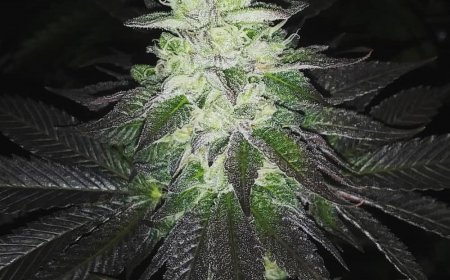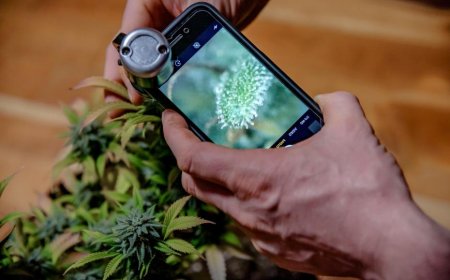What is Leonotis leonurus?
Explore the mysteries of nature with us as we delve into 'What is Leonotis leonurus', its history, effects, uses and safety precautions.
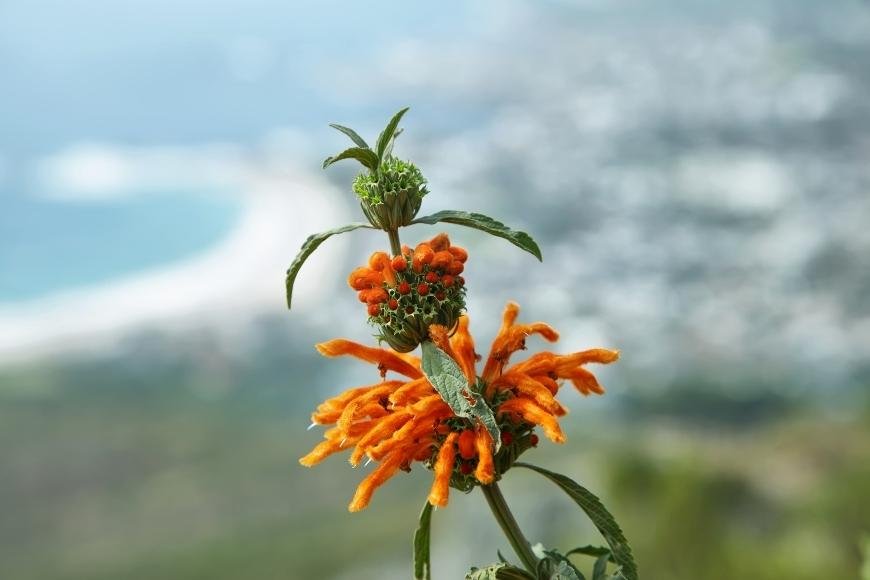
What is Leonotis leonurus? This intriguing plant, also known as lion's tail or wild dagga, has a rich history and an array of uses that are fascinating to explore. It originates from South Africa but its popularity has spread globally due to its captivating ornamental beauty and alleged psychoactive properties.
The journey of understanding Leonotis leonurus starts with delving into its historical context, where we unravel the ancient practices associated with this plant. The exploration continues as we discuss the effects and side effects tied to it - aspects that any user should be aware of for their safety.
We will then delve into various traditional uses of Leonotis leonurus before finally exploring modern applications including those in horticulture and alternative medicine. So get ready for an enlightening journey through the world of Leonotis leonurus var albiflora benth!
Table of Contents:
- What is Leonotis leonurus?
- The Fascinating History of Leonotis Leonurus
- Effects of Leonotis leonurus
- Side Effects of Leonotis Leonurus
- Safety of Leonotis leonurus
- Modern Uses of Leonotis Leonurus
- FAQs in Relation to What is Leonotis Leonurus
- Conclusion
What is Leonotis leonurus?
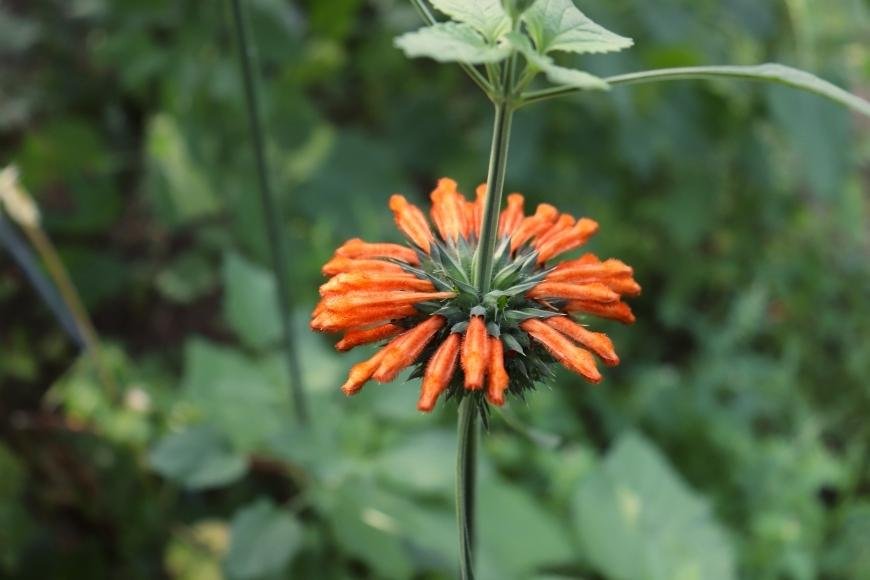
Leonotis leonurus, also known as Wild Dagga or Lion's Tail, is a South African plant species that can grow up to 3 meters tall. Its bright orange flowers resemble lion's tails, which is how it got its name. The leaves of Leonotis leonurus, commonly referred to as Wild Dagga or Lion's Tail, have long been utilized in traditional healing practices due to their psychoactive qualities.
The active ingredient in Leonotis leonurus is a compound called leonurine, which can induce mild euphoria when consumed. While it's often compared to cannabis, its effects are generally milder and shorter-lived.
Aside from its recreational use, this plant has various medicinal applications. Traditional healers have used it as an anti-inflammatory agent, treatment for hypertension, and diabetes, among other ailments.
Many people grow Leonotis leonurus at home for personal use because it's easy to cultivate even in temperate climates outside of Africa. It's also a beautiful ornamental plant with striking orange flowers.
While there isn't much scientific research on this particular herb yet, anecdotal evidence suggests that it might be worth exploring further if you're interested in alternative substances beyond just cannabis or magic mushrooms. Yet, one should be mindful when utilizing it for recreational purposes, particularly those who are inexperienced with such activities or have underlying medical issues.
The Fascinating History of Leonotis Leonurus
Indigenous tribes have been using this perennial shrub for centuries for its medicinal and psychoactive properties.
Traditional Medicinal Uses
The leaves of the plant were often smoked or made into a tea to induce a state of relaxation and euphoria. The blooms, abundant with sweet nectar, were alluring to various birds and bugs, playing a significant role in the area's ecosystems. In South African folk medicine, Leonotis leonurus was commonly used as an antidote against snakebites. In addition to being employed as an antidote against snakebites, Leonotis leonurus was also used medicinally for treating fever, headaches, dysentery and influenza.
Spiritual Significance
Aside from its medical uses, this plant held spiritual significance too. Some tribes believed that smoking the dried leaves could invoke visions and prophetic dreams, connecting them with their ancestors or the spiritual realm.
Modern-Day Uses
Despite modernization and urbanization, many traditional uses of Leonotis leonurus still persist today, especially within rural communities who continue to rely on plants like this for healthcare needs due to lack of accessibility to modern medicines.
Conclusion
Leonotis leonurus is a fascinating plant with a rich history and diverse uses. Its traditional medicinal and spiritual significance continues to be valued today, making it an important part of Southern African culture.
Sources: PubMed Central
Effects of Leonotis leonurus
When consumed, the herb can induce a calming sensation that some users compare to the mild euphoria associated with cannabis use. Reports suggest that ingesting this herb can provide a calming effect similar to the mild high associated with cannabis, as well as potentially reducing stress and improving feelings of contentment. Some people even report experiencing mild hallucinations after consuming large amounts.
In addition to these psychological effects, Leonotis leonurus may have physical benefits as well. Thanks to its anti-inflammatory and antiviral properties, Leonotis leonurus has been traditionally used for treating various ailments such as coughs, high blood pressure, and fever.
However, it's important to not only focus on the potential positive outcomes but also consider possible adverse reactions. Some users have reported experiencing nausea, dizziness, and headaches after consuming the herb. As with any substance consumption, moderation is key.
References:
- Leonotis leonurus: A Review of Ethnobotanical Uses, Phytochemistry, and Pharmacology
- Antiviral activity of South African medicinal plants against herpes simplex virus type 1
Side Effects of Leonotis Leonurus
Leonotis Leonurus, also known as Wild Dagga or Lion's Tail, has been used for centuries, but it's important to understand its potential side effects before trying it out. It is essential to be cognizant of the possible dangers as individuals may respond differently to this substance.
Mild Euphoria and Dizziness
The most common side effect of Leonotis Leonurus is a mild euphoria that can sometimes lead to dizziness or lightheadedness. Dry mouth and eyes are also possible, so make sure to stay hydrated.
Nausea and Vomiting
Overconsumption of Leonotis Leonurus can lead to nausea and vomiting. Moderation is essential when utilizing psychoactive substances; begin with smaller amounts and incrementally increase if needed to prevent distress. Start with smaller doses and gradually increase if necessary to avoid discomfort.
Anxiety and Paranoia
Large amounts of Leonotis Leonurus can cause anxiety and paranoia. If you're vulnerable to anxious episodes or have a mental health issue, it's recommended that this herb be avoided.
Remember to consume Leonotis Leonurus responsibly. Never operate heavy machinery under its influence, and make sure someone sober knows what you're doing in case medical assistance becomes necessary. For more information on the safety profile of this potent herb, check out this study.
Safety of Leonotis leonurus
However, it's important to understand its safety profile before incorporating it into your lifestyle.
The plant is generally considered safe when consumed responsibly and in moderation. It has a long history of use among indigenous people of South Africa where the plant originates from. They have traditionally used it to treat various ailments without significant adverse effects.
However, like any substance with psychoactive properties, Leonotis leonurus can potentially cause side effects if consumed excessively or improperly prepared. Some users report mild hallucinations and euphoria while others experience dizziness or increased heart rate.
It's crucial to remember that everyone reacts differently to substances due to factors such as body weight, metabolism rate and overall health condition. Therefore, starting with small doses and gradually increasing them based on individual tolerance levels is recommended.
Before taking Leonotis leonurus, consult a healthcare professional to ensure it does not interact with any current medications or supplements. This will help avoid potential interactions that could affect the efficacy of your current treatments or lead to unexpected side effects.
While there isn't extensive scientific research on the safety of Leonotis leonurus specifically yet due its relative obscurity outside its native regions compared to more well-known plants, anecdotal evidence suggests responsible usage poses minimal risk for most adults.
Indigenous Use
Leonotis leonurus has been used for centuries by indigenous people of South Africa for medicinal purposes. They have traditionally used it to treat various ailments such as headaches, fever, and respiratory infections. The plant has also been employed as a calming agent and to help reduce stress.
Psychoactive Properties
Leonotis leonurus contains several psychoactive compounds, including leonurine and alkaloids. These compounds can cause mild hallucinations and euphoria when consumed in higher doses. Though the effects of Leonotis leonurus are not as strong as those from other psychoactive plants, they can still be felt.
Side Effects
While Leonotis leonurus is generally considered safe, some users may experience side effects such as dizziness, increased heart rate, and nausea. Mild reactions may be experienced by some, including feelings of dizziness, increased pulse rate and nausea; however, these typically dissipate without treatment.
Conclusion
Leonotis leonurus is a plant with a long history of use in traditional medicine. While it has psychoactive properties, responsible usage poses minimal risk for most adults. However, it's important to start with small doses and consult a healthcare professional if you're currently taking other medications or supplements.
Modern Uses of Leonotis Leonurus
It has been used recreationally due to its mild psychoactive effects when smoked or brewed into a tea.
Recreational Use
The plant's leaves and flowers are often dried and smoked by those seeking a legal alternative to cannabis. The euphoric state induced by smoking Leonotis Leonurus is described as being similar to the high experienced from marijuana but milder.
Natural Medicine
Besides recreational use, modern applications of this herb extend into the realm of natural medicine. Some folks ingest it in diverse forms, like extracts and capsules, to help alleviate conditions such as headaches, bronchitis, hypertension, and fever. At this time, there is a lack of scientific research on the plant.
Landscaping
Leonotis Leonurus has found a place in landscaping due to its vibrant orange flowers which bloom most of the year round. Its aesthetic appeal makes it an attractive addition to gardens across different climates worldwide.
While there are anecdotal reports supporting these benefits of Leonotis Leonurus usage, moderation is key along with awareness about potential side effects. It's always best to consult with a healthcare professional before using any new substance for medicinal purposes.
FAQs in Relation to What is Leonotis Leonurus
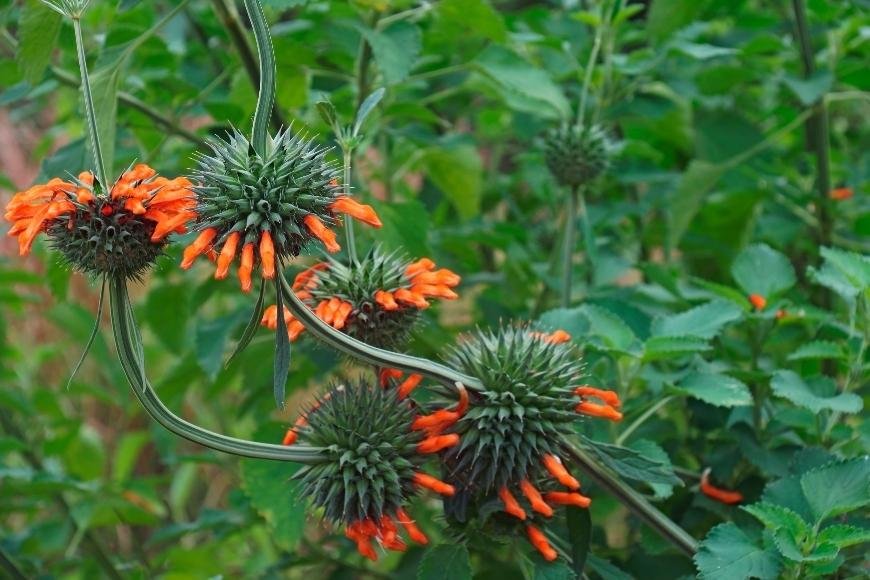
What is Leonotis leonurus and where did it come from?
Leonotis leonurus, also known as lion's tail, is a plant native to South Africa that is now found in many parts of the world due to its ornamental value and potential therapeutic uses.
What is the meaning behind the name Leonotis?
The name 'Leonotis' comes from Greek words 'leon' and 'otos', meaning "lion's ear", which refers to the shape of its flowers that resemble a lion's ear.
Does Leonotis leonurus have psychoactive effects?
Yes, Leonotis leonurus contains a mild psychoactive substance called leonurine that can induce a state of calm and relaxation when smoked or consumed.
What are the traditional medicinal uses of Leonotis leonurus?
Leonotis leonurus has been traditionally used for its potential therapeutic properties, including as a treatment for coughs, colds, and bronchitis.
Are there any potential risks or side effects of using Leonotis leonurus?
While Leonotis leonurus is generally considered safe, excessive consumption may lead to nausea, vomiting, and dizziness. It is important to use caution and consult with a healthcare professional before using any herbal remedies.
Conclusion
Leonotis leonurus, also known as lion's tail or wild dagga, is a plant native to Southern Africa that has been used for centuries for its medicinal and recreational properties. It has a long history of use in traditional African medicine and is known for its calming effects on the mind and body. However, caution should be exercised when consuming this plant as there are potential side effects associated with its use. If you're interested in learning more about Leonotis leonurus, check out this on its traditional uses and pharmacological properties.

